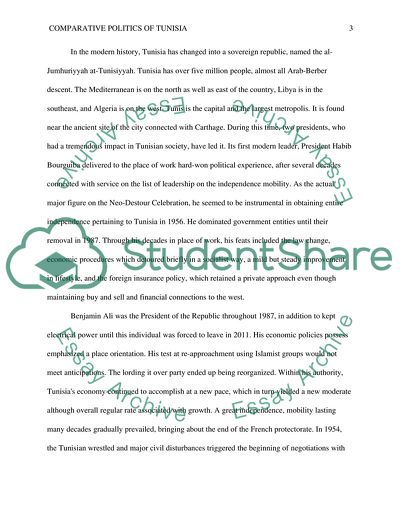Cite this document
(“Country Report- Comparative Politics (Tunisia) Essay”, n.d.)
Country Report- Comparative Politics (Tunisia) Essay. Retrieved from https://studentshare.org/history/1639009-country-report-comparative-politics-tunisia
Country Report- Comparative Politics (Tunisia) Essay. Retrieved from https://studentshare.org/history/1639009-country-report-comparative-politics-tunisia
(Country Report- Comparative Politics (Tunisia) Essay)
Country Report- Comparative Politics (Tunisia) Essay. https://studentshare.org/history/1639009-country-report-comparative-politics-tunisia.
Country Report- Comparative Politics (Tunisia) Essay. https://studentshare.org/history/1639009-country-report-comparative-politics-tunisia.
“Country Report- Comparative Politics (Tunisia) Essay”, n.d. https://studentshare.org/history/1639009-country-report-comparative-politics-tunisia.


